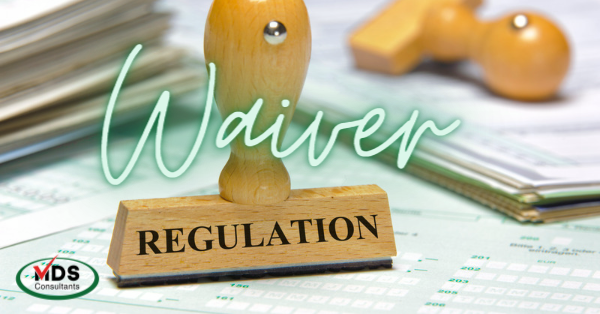When the President and HHS Secretary declared a national health emergency in response to the COVID-19 pandemic, they triggered section 1135 of the Social Security Act. Section 1135 allows the Secretary to temporarily waive or modify certain Medicare and Medicaid requirements to ensure sufficient health care for enrollees.
Skilled Nursing Facilities (SNFs) were issued multiple blanket waivers.
- 3-Day Prior Hospitalization waiver– waives the 3-day inpatient hospital stay requirement
- Spell of illness waiver– authorizes renewed SNF coverage without first having to start a new benefit period.
What Does This Mean for Skilled Nursing Facilities
These waivers are considered “blanket” waivers. “Blanket” does not mean that the facility can skill everyone. The term simply means that providers do not need to apply for an individual waiver.
The waivers only cover specific situations and residents. A letter HHS published in March clarifies:
“SNF care without a 3-day inpatient hospital stay will be covered for beneficiaries who experience dislocations or are otherwise affected by the emergency, such as those who are (I) evacuated from a nursing home in the emergency area, (2) discharged from a hospital (in the emergency or receiving locations) in order to provide care to more seriously ill patients, or (3) need SNF care as a result of the emergency, regardless of whether that individual was in a hospital or nursing home prior to the emergency.”
While it is true the resident does not necessarily have to have COVID-19, he/she does need to have been affected by the pandemic either directly or indirectly to qualify for the waiver.
Also stated in the same letter from HHS:
“We will recognize special circumstances for certain beneficiaries who, prior to the current emergency, had either begun or were ready to begin the process of ending their spell of illness after utilizing all of their available SNF benefit days. …the dislocations resulting from the emergency (including emergency-related measures that could result in discharge delays) may delay or prevent such beneficiaries from commencing or completing the process of ending their current benefit period and renewing their SNF benefits that would have occurred under normal circumstances.”
Waiving the 60-day wellness period applies only to those residents that already began or were about to start a wellness break when they were affected by the pandemic.
Our Take
When reading the releases from CMS, there are two critical factors that stand out when applying the waivers.
- The first, providers furnishing “good faith” services, may receive supplemental payments, expansion of benefits, and exemption from sanctions (absent any determination of fraud or abuse).
- Second, the Secretary of Health and Human Services finds that doing so will not increase total payments made under the Medicare program or change the essential acute-care nature of the SNF benefit.
When a facility is going to utilize the waivers, it must be done in good faith and not change the nature of the benefit. Facilities should use the waivers responsibly, document why and when the waiver is applied, and don’t forget the resident must still met the level of care guidelines.
